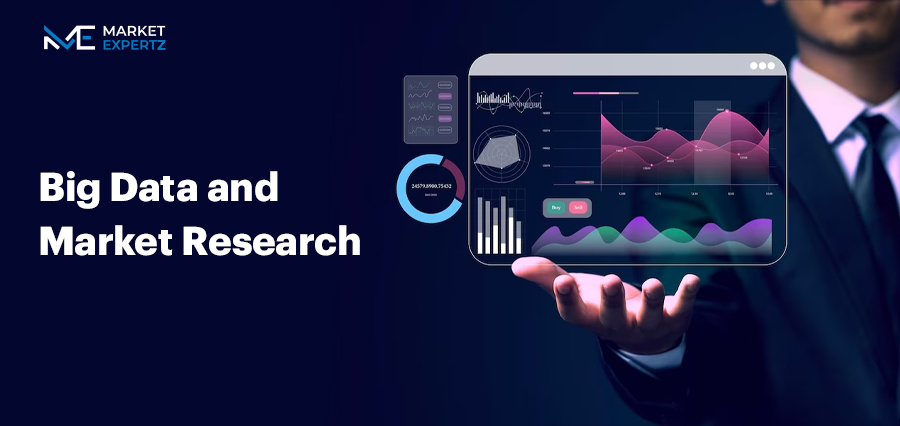Harnessing Big Data Analytics to Advance Market Research
Published Date : 2023-12-04
Big Data encompasses gathering, analyzing, and using massive amounts of digital information to enhance business operations, such as getting a 360-degree view of the audience. It covers a vast amount of structured and unstructured data from various sources, such as customer interactions, social media, online transactions, and sensor data. This wealth of information enables enhanced data collection, empowering researchers to collect massive datasets in real-time or near real-time, supplementing traditional methods.
Advanced analytics, driven by machine learning and artificial intelligence, unravel intricate patterns and correlations within these datasets, yielding profound insights that might remain hidden through conventional approaches.
Unstructured data from sources like social media, review sites, web searches, mobile apps, and IoT devices provides a trove of insights into consumer attitudes, preferences, and behaviors. This data can be mined through text and sentiment analysis tools to identify trends faster than ever before.

Structured transactional data from point-of-sale systems, customer relationship management platforms, and inventory databases can be aggregated and analyzed to find patterns in sales, demographics, psychographics, and longitudinal behaviors. Researchers can segment consumers into micro-categories.
Using big data analytics and data mining techniques, researchers can analyze billions of data points to derive predictive models and recommendations. This allows for smarter targeting, messaging, and product placement.
While big data empowers market research, human oversight is still critical. Researchers must vet data sets and algorithms to avoid bias and false correlations. Big data should augment, not replace, traditional qualitative methods like ethnography and in-depth interviews.
The key factors driving the growth of big data in market research:
- The proliferation of digital data: More consumer data than ever before is being generated from sources like social media, mobile devices, IoT sensors, web activity logs, e-commerce transactions, etc. This expands insights.
- Faster, cheaper data processing: New big data tools allow for collecting, storing, and analyzing huge datasets rapidly and cost-effectively.
- Demand for real-time insights: Businesses want to make faster data-driven decisions and require insights delivered in real-time vs. static reports.
- Need for granular understanding: Big data enables more targeted segmentation and personalization down to the individual consumer level.
- Shift from surveys to behavioral data: Consumer behavior provides more objective insights than what people say in surveys.
- Advances in analytics: Machine learning and AI unlock hidden insights from complex unstructured big data.
However, ethical concerns and data volume overload are the major challenges faced by the global industry. Further resistance to change and unstructured data challenges are the other challenges that organizations need to address.
In addition, as per Market Expertz IBM, Google, Accenture, Cloud Software Group, Inc., Fractal Analytics Inc., and Infocus Technologies are some of the major companies included in the global big data market report.
In conclusion, the emergence of big data has revolutionized the field of market research. The sheer volume and variety of structured and unstructured consumer data now available to researchers represents a remarkable opportunity. However, it also poses challenges in data management, analysis, security, and ethics.
Effective application of big data analytics enables businesses to uncover granular, real-time insights about customer preferences and behaviors. Researchers can leverage predictive modeling, machine learning, and AI to drive smarter marketing, product development, and growth strategies.